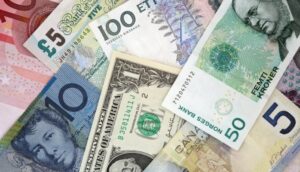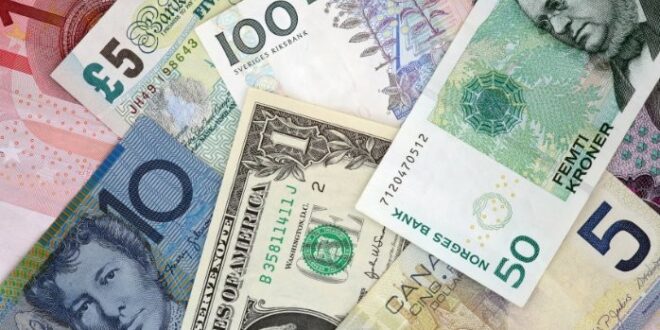Nigerian Senate Moves To Ban Dollar Salaries, Foreign Currency Transactions
Nigeria’s Senate is moving to ban the use of the dollar and other foreign currencies for local transactions, with the introduction of a new bill.
The proposed legislation, titled “A Bill for an Act to Alter the Central Bank of Nigeria Act, 2007, No. 7,” aims to outlaw the use of the dollar and other foreign currencies.
The bill which has scaled first reading in the Senate, aims to ensure that all payments, including salaries, are made using the Nigerian naira.
If passed into law, the bill will prohibit the use of foreign currencies for local transactions, including salaries, bonuses, and other forms of remuneration.
This move is seen as a step towards reducing Nigeria’s reliance on foreign currencies and promoting economic stability.
Nigeria’s Senate is proposing a bill to ban the use of foreign currencies for local transactions
The Sponsor, Senator Nwoko Speaks
The sponsor, Senator Nwoko has been a long time proponent of this decision to ban the use of foreign currency in the country.
In his defense, Senator Nwoko criticized the widespread use of foreign currencies in Nigeria’s financial system, calling it a “colonial relic”
He asserted that this practice devalues the Naira, exacerbates economic difficulties, and erodes Nigeria’s monetary independence.
“The extensive use of foreign currencies in our financial transactions continues to erode the value of the Naira and fosters a dependency that hinders Nigeria’s economic sovereignty.
“This legislation is a step toward restoring confidence in our local currency and reducing unnecessary pressures on our economy,” Nwoko stated.
Nigeria’s battle with ‘dollarization’
Dollarization refers to the widespread use of foreign currencies—especially the U.S. dollar—in a country’s economy alongside or in place of the domestic currency.
In Nigeria, the increasing use of the U.S. dollar in transactions, despite the Naira being the official legal tender, has raised significant concerns about economic stability.
Nigeria has long struggled with its local currency, racing against time to stabilize the Naira.
Since the current administration devalued the currency last year, the Naira has suffered a steep decline, placing it among the lowest-ranked global currencies.

This comes amid repeated warnings by the country’s apex bank against the use of dollars and other foreign currencies.
In a statement, the Central Bank of Nigeria (CBN) highlighted that certain institutions continue to price their goods and services in foreign currencies and insist on payments in these currencies, instead of the Naira, which remains the legal tender in Nigeria.
“For the avoidance of doubt, the attention of the general public is hereby drawn to the provisions of the CBN Act of 2007, which states inter-alia that “the currency notes issued by the Bank shall be legal tender in Nigeria…for the payment of any amount”.
“Furthermore, the Act stipulates that any person(s) who contravenes this provision is guilty of an offence and shall be liable on conviction to a prescribed fine or six months imprisonment.” the CBN warned.
With the new bill, the Senate aims to boost Nigeria’s economy and promote self-sufficiency by increasing Naira adoption, strengthening the economy, and harnessing the country’s domestic resources.
 Gistfox Your News Window To The World.
Gistfox Your News Window To The World.





